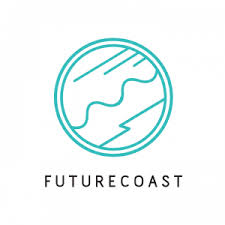 In a recent discussion about the making of a new collaborative game set in the near future, headlined “The Making of FutureCoast,” Stuart Candy of the Situation Lab spoke with game designers Ken Eklund and Sara Thacher about just what they accomplished and how it all came about.
In a recent discussion about the making of a new collaborative game set in the near future, headlined “The Making of FutureCoast,” Stuart Candy of the Situation Lab spoke with game designers Ken Eklund and Sara Thacher about just what they accomplished and how it all came about.
It’s a game with a future, and word is getting out. Wired magazine recently ran a story, and more media pickups are sure to follow. TeleRead is on the trail now.
So what is FutureCoast? As Candy describes it, the project was “a collaborative cli-fi (climate fiction) storytelling game, created by the PoLAR Partnership at Columbia University and funded by the U.S. National Science Foundation (NSF).”
That’s a pretty good start, with highly visible partners: Columbia and the NSF bring validation, for sure.
While five or ten years ago, such a game would have fallen into the sci fi genre, Eklund, with his own reading of the times we live in, has positioned it as a cli fi game.
It happened like this:
In 2008, the NSF ran a symposium in which innovative and creative people outside of the science field explained what they did to an NSF advisory team.
“Afterward, Stephanie Pfirman, a professor at Columbia, sought me out and we talked for two hours about game ideas set in the polar regions (her area of study),” Eklund said.
Later, in 2011, the NSF called for proposals for climate change education projects, and Pfiman told Eklund that she felt that learning games would be an good approach.
A year later, Eklund got the word that the Futurecoast project had been greenlighted.
“The NSF has begun to focus on storytelling as a necessary part of climate change education, which maps exactly to how FutureCoast is played,” he said. “So suddenly there’s a lot of attention on our gameplay and methods.”
Think voicemail and here’s why: According to Thacher, who feels there is a very ”personal nature” to the FutureCoast game, the project team decided to use voicemail – one person calling another and leaving a message — as the main feature.
When asked why the time horizon for players’ voicemails from the future is between 2020 and 2065, Eklund explained that in the game’s platform, there is a software system has a leak in it, in the voicemail system, and voicemails are leaking through space-time.
“This software system comes online around the year 2020 in most futures, and they finally fix the leak around 2065,” he noted.
When asked what comparable game efforts have appeared before around climate change as a theme, and where their new project fits in, Eklund said: “I don’t know of any comparable approaches, but in a wider sense this project fits into the emerging genre of ‘cli-fi,’ climate fiction. Works of cli-fi tend to be single-authored stories about a single possible future, though; I don’t know of any that are participatory or that explore the cloud of plausible futures.”
As Eklund sees it, a major challenge with climate change as a subject is the polarized state of its discussion.
FutureCoast is a world that participants can share. People are already playing it, and TeleRead readers can get online there, too. To play the game, you must agree on two things: basic structure of the world — voicemails are appearing from the cloud of possible futures and on the improv rule of ”Yes, and” where everyone’s contribution is accepted as part of the game.
Thacher is excited about what they’ve created, noting: “The area for participatory storytelling that I’m most excited about is just how much our remix culture has changed what it means to participate. Appropriation is almost not the right word anymore, because there’s already a feeling that stories/media belong to everyone. In this brave new world, the TV show ‘Mean Girls’ becomes an avenue for political commentary and The Hulk becomes an advocate for feminism. In the future ahead, I’m excited to see how this’ll be applied as increasing numbers of storytellers realize that their creations are already participatory.”
So start your engines and get online for FutureCoast. Collaborative storytelling in the Internet Age just got more exciting.


















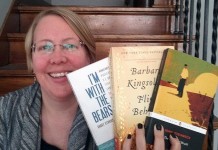

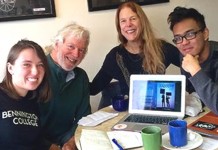
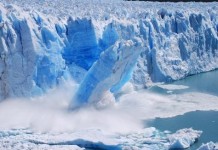
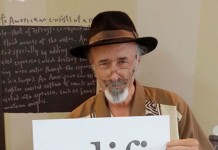











Future Coast is one of nine projects in development for the Polar Learning and Responding (PoLAR) Climate Change Education Partnership. The project lead on Future Coast is Ken Eklund. At this time, we are allowing Future Coast to unfold organically as a collaborative storytelling game that runs through the end of April. As part of our grant from the National Science Foundation, the overarching goal of Future Coast is to engage the public in a conversation about the potential impacts of climate change using a novel, participatory approach. PoLAR is most interested in making meaningful connections with potential players via our climate change education and communication networks. Thanks for your interest, and we hope that you are able to participate in the game.